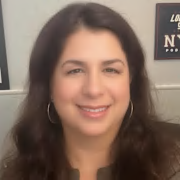How the New York Giants' Collaborative Play-Calling Approach Will Work

Giants head coach Joe Judge didn't come right out and identify who will be calling plays for the team this weekend against the Eagles now that Jason Garrett has been relieved of his duties. Still, there is a strong feeling that it will be senior offensive assistant Freddie Kitchens.
But there's a caveat. Only one man can call in the plays to the quarterback--and that man is very likely to be Kitchens. But that doesn't necessarily mean that if it is Kitchens, he will fully assume Jason Garrett's former duties.
Instead, Judge has said that it will be a collaborative effort between those coaches on the sideline, which would include quarterbacks coach Jerry Schuplinski and Kitchens, two of the coaches who appear to have the most interaction with quarterback Daniel Jones now that Garrett is gone.
"I would expect everyone being on the sideline involving calling plays," he said Wednesday. "That being said, the guys in the booth are directly responsible for communicating the looks, the fronts, the coverages, some of the adjustments we have to have, and being our eyes overtop. The communication from the booth to the field stays constant."
Judge's explanation is curious to say the least because it conjures up scenes of multiple people chiming in on what to do in any given situation, which could make it somewhat chaotic if that is indeed the case and it's not properly managed.
Plus, the reality is the Giants, like any other NFL team, only have so many seconds to decide and then relay the play into the quarterback's helmet. So having too many voices chiming in with the clock is running could lead to some delay of game penalties or wasted time outs.
So how does Judge envision the process flowing smoothly?
"It’s important to communicate throughout the week leading up to the game, what we see on tape, what we install, how it looks in practice, what the adjustment will be, what is our weakness in that scheme. Then also in between drives communicating what the adjustments have to be, what they’re doing well, what we have to combat it, what we have to take advantage of," Judge said when asked to clarify how the planned collaborative approach would work.
"Also, within the drive itself, you’ve got to be very quick with the communication. You’ve got to make sure everyone’s on the same page that when you’re collaborating on things. That may be a run scheme and someone says, ‘Hey, they’re playing this front. Get to this run right now.’ ‘They’re in this personnel group, we have them trapped in something, get to this right now.’ So, it’s got to happen fast, but you set up the communication in-game with how you communicate throughout the week leading up to it."
Judge said that whoever does call the plays will be there on the sideline rather than up in the coach's box.
"I think it’s important for a play caller to be on the sideline to have direct communication with the quarterback, number one," he said. "Also, to be there to present anything new to the team, if he has to draw something up or present a concept or a scheme we’re going to have to do."
Judge cited a "competitive advantage" in keeping the actual play caller's identity a secret. While he didn't go into a detailed explanation, the thinking is likely to force the Eagles to do extra work to narrow down possible trends.
Eagles head coach Nick Sirianni, who said the team is operating as though it will be Kitchens calling plays, said the Giants have an advantage by keeping the play-caller's identity secret.
"Anytime a play caller changes, there’s definitely advantages to that as far as for the Giants because again, whoever might be calling the plays, it’s going to be different. No matter who it is, it’s going to be different than how Coach (Jason) Garrett called it because everybody’s going to think of the game a little differently," he said.
"Even of us that think of the game very similar, there’s going to be differences within play calling. So yeah, I believe there’s a competitive advantage whenever there’s a change and you don’t have any current tape on the coordinator that will be calling it."
More from Giants Country
- New York Giants - Week 12 Storylines to Watch
- New York Giants Week 12 Opponent First Look: Philadelphia Offense
- Michael Strahan Honored to Finally Have Jersey Number Retired By Giants
- Daniel Jones Breaks Silence About Jason Garrett's Firing
- New York Giants Week 12 Opponent First Look: Philadelphia Defense
- Giants Add TE Deon Yelder to Practice Squad
- Joe Judge Defends Giants' Offensive Line
Join the Giants Country Community
- Sign up for our FREE digest newsletter
- Follow and like us on Facebook
- Submit your questions for our mailbag
- Listen and subscribe to the daily LockedOn Giants podcast.
- Subscribe and like the new LockedOn Giants YouTube Channel
- Sign up for our FREE message board forums
- Subscribe and like our YouTube Channel
